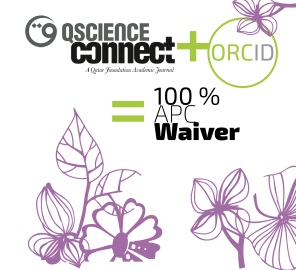The latest ORCID road-trip involved visits to eight countries, six languages, ten airports, and fourteen plane tickets. Through it all, an infrastructure of shared terms and similar processes for checking in, airport security and customs, boarding, getting luggage enabled a seamless journey. In an analagous way, ORCID is a part of the plumbing for scholarly communications. Regardless of your institution or language, ORCID enables shared terms and processes for collecting your name in manuscripts, grants, datasets, education, and employment, ensuring your research and scholarly contributions are attributable and discoverable.
First stop: Doha for QScience Open Access Day. Open Access initiatives are gaining ground in the Arabic-speaking world. Speakers at the event und erscored the importance of respect for local culture and local control of policy. They also discussed the use of ORCID identifiers to ensure author names are linked across representations in Arabic and English, a need shared by Qatar University, university branch campuses based in Doha, and universities across Arabic-speaking countries. One example that brings together access and discovery is the Bloomsbury Qatar publishing house journal QScience, which has implemented a policy that waives APC charges for authors who include their ORCID iD when submitting an article.
erscored the importance of respect for local culture and local control of policy. They also discussed the use of ORCID identifiers to ensure author names are linked across representations in Arabic and English, a need shared by Qatar University, university branch campuses based in Doha, and universities across Arabic-speaking countries. One example that brings together access and discovery is the Bloomsbury Qatar publishing house journal QScience, which has implemented a policy that waives APC charges for authors who include their ORCID iD when submitting an article.
From Doha, I traveled to the Nanyang Technical University in Singapore, where research outputs, usage statistics, and national university rankings drive university growth by attracting excellent faculty and students. Ensuring that faculty and their publications are unequivocally connected is similarly important in Hong Kong.  Visibility to other researchers and the broader community are reasons universities in Hong Kong are integrating ORCID identifiers into university directory and faculty profile systems. “We want to solve the name disambiguation problem once and for all, “ said David Palmer of Hong Kong University.
Visibility to other researchers and the broader community are reasons universities in Hong Kong are integrating ORCID identifiers into university directory and faculty profile systems. “We want to solve the name disambiguation problem once and for all, “ said David Palmer of Hong Kong University.
The issues caused by transliteration of names are cross-cutting. In Beijing, the National Science Library of the Chinese Academy of Sciences (CAS) has launched iAuthor (see blog), a platform that integrates ORCID identifiers to link CAS researchers with their works and display these connections on a customized profile page. The CAS Institute of High Energy Physics (IHEP) is looking to use ORCID identifiers as a means to connect researchers with disciplinary identifiers and repositories such as INSPIRE and ArXIV, and with works published outside of these collections. Across town at Tsinghua University Library, Deans of eight large universities met to learn more about ORCID. They discussed how to balance local identity control with the reality of an international scholarly community. ORCID identifiers present an opportunity to develop shared discovery services for researchers on their campuses.
The Korean Association of Medical Journal Editors (KAMJE) hosted a researcher identifier workshop in Seoul. In Korea, over 90% of all nationals share just 10 surnames and it is not uncommon for journal articles to have two authors with the same first and last name. Discovery based on name searches is impractical, and ORCID identifiers present an international solution to name ambiguity problems, one that connects Korean authors with their work whether it is published in English or Korean.
Next stop was Tokyo for the ORCID Outreach meeting (see blog) and the Japan Library Fair. Speakers presented on initiatives to link national, disciplinary, and proprietary researcher identifier schemes using ORCID to better enable discovery and research reporting. Again, discussion centered around balancing local control and context with the strong desire to share scholarly information across national and disciplinary boundaries.
From Tokyo, I traveled to Auckland and then Canberra, where we discussed ORCID implementation strategies with the University of Auckland, the National Health and Medical Research Council, and the Australian Research Council. In addition to sector-specific approaches for universities and research funders, we discussed options for coordinated national implementation, with the goals of improving discoverability and reducing reporting burdens for researchers.
Overall, I am struck by how similar these conversations were, across nations, sectors, and disciplines. The idea that integration of ORCID improves visibility of individual researchers; supports discovery and exposure of local scholarly works to an international community; respects local scholarly culture and contexts; and enables improved research reporting. And, the shared understanding that, for the benefits of ORCID to be realized, the research community needs to work together.
We look forward to this continued collaboration, and are already preparing our suitcases for the next journey and conversation. Contact us if you are interested in hosting an ORCID Workshop at your organization.
